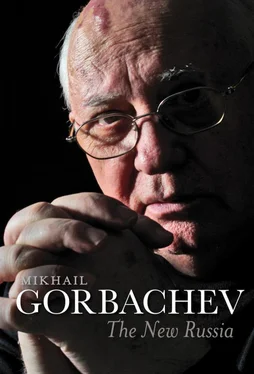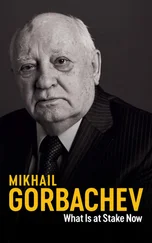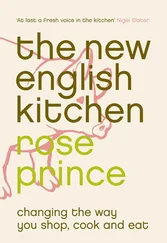For our country, Russia, the twenty-first century may also be decisive. The present generation of Russian citizens, politicians and leaders may finally put our country on the road to stable democratic development. A renewed Russia may become a key participant in renewing the world. She has much to offer: natural and intellectual resources; the lessons from the past which we are, in spite of everything, learning; and an ardent desire to pave the way for a future of peace and justice for new generations.
Reflections of an Optimist
(As noted by Mikhail Kazinik and Dmitry Golubovsky)
As soon as people start asking you for wisdom, you think, ‘Looks like I’m on my last legs.’
My very first memory is of famine. In 1933 I was just over 2 years old, and I remember my grandfather, Andrey, catching frogs in our small creek and boiling them in a pot. Their little white bellies turned upwards when they were being boiled, but I don’t remember eating them. Much later, on a boat trip on the Seine and to the accompaniment of songs about Paris, Raisa and I did eat frogs’ legs.
In 1935, I was seriously ill. It was just called ‘being poorly’. I couldn’t breathe. They put a candle by the cradle and cried but couldn’t think what else to do. We lived in the countryside; it was 1935. You get the picture. Then a woman came in and said: ‘You need to find some good honey and get him to drink a glass of that.’ I remember it perfectly: the room there, the window here, and a little blue teapot they put on the window-sill, very, very dark blue, with the honey. I took it, drank it and the lid fell off. I can still hear the clatter it made, right now.
I get spasms in the night in August, ever since I worked on the combine harvester as a boy. If I close my eyes now, I can see the wheat in front of me, oceans of it. Especially in June when it grows, the ears form and seed and the quail get to work on them.
Both my grandad Andrey and my other grandad, Panteley, were poor peasants. Soviet power gave them land and 10 years later they were classed as middle-income peasants. Grandad Panteley liked to say: ‘Soviet power was the saving of us. It gave us land. The rest we did ourselves.’
I haven’t been back to Privolnoye for five years now, and the other day decided I must go back again, in September or October. Those are the loveliest months: the harvest has been brought in and all you hear is the roar of tractors in the distance tilling the soil ready for winter, the birds are migrating, and that’s how life goes on, one thing following the other.
A person with no sense of belonging somewhere will never amount to anything.
I don’t like people who don’t care how they relax or what company they keep. I am a different kind of person.
After the war, I worked for five years on the combine harvester with my dad. We became very close, talked a lot, and I asked him a lot of questions. We developed a man-to-man relationship. The most serious ticking-off I ever got from him was routed through my mother. I was 18 and he said: ‘Tell Mikhail he is staying out too late. He should come back earlier.’
Life is passing and people are passing away.
In a television interview, Vladimir Pozner asked me: ‘Supposing it was possible, and you were invited to phone someone no longer with us. Who would you like to talk to?’ I answered: ‘I think for Gorbachev everyone knows the answer – his wife.’
Raisa and I were together for 46 years, and for 40 of them we went for a walk every day, wherever we were. In all weathers: in blizzards, snow, rain, but Raisa especially loved blizzards. I would say: ‘No, for heaven’s sake, there’s a blizzard outside!’ She would just say, ‘Come on, let’s go!’ and out we would go. I got used to walking in blizzards. When she died I stopped going for walks.
I used to wind Raisa up. One time I said: ‘You don’t want to make me angry.’ I gave a menacing sigh and added: ‘Because I just need to raise my fist, just bring it down once and that will be it. It won’t take two blows.’ She said: ‘What, are you thinking of beating me. You’ve gone nuts!’
In old age it gets difficult to hold back tears.
I take better care of my health now. I want to keep a promise I made to my friends to invite them to my 90th birthday. It was a bit of a cheek, but I think that’s the way to behave, setting goals that challenge you.
I slept well last night, but the night before was grim. I took a double dose of painkiller but couldn’t come to an amicable arrangement with sleep. I dozed off towards morning and had the most amazing dream. The day before, I had watched a film about the Civil War. The commentary said 15 million people died in Russia in those years. Anyway, in my dream I was walking with someone and they showed me all the dead people. Countless numbers of them. At the end I came to a bright, open space and asked: ‘What’s over there?’ My guide said: ‘That’s where the dead go.’
Often when I am asleep, I find the answer to questions that have been tormenting me while I was awake. Someone told me I should keep a pen and notebook by the bed to write it down. I tried that, but when I read what I’d written, I decided it hadn’t been worth waking up for.
Morning is my favourite time. I wake at 6:00 or 6:30, throw off the blanket, smooth the bedclothes, lie down again and do exercises. Completely basic things, stretching, push-ups. I can’t be sure whether the cat is imitating me when it stretches or I am imitating the cat.
I may be a hunter, but I’m not a destroyer.
A missile the Americans call the Satan and we call the R-36M has the power of 100 Chernobyls. In one missile! When you hear that while occupying the position I held, you feel a bit unhinged.
When I hear people talk about a ‘Soviet stooge’, I feel nothing. For a politician at my level the expression is meaningless.
In tenth grade I had to produce an essay for my school-leaving exams and chose to write on ‘Stalin is our military glory, Stalin is the soaring of our youth’. It got a mark of ‘Excellent’. Today I consider myself one of the staunchest opponents of the evils of Stalinism.
Russia’s history is complicated. It is hard to say what was the golden age. Everything was always becoming, becoming, expanding, assimilating territory.
When people ask me what Russia will be like in 20 years’ time, I can’t bring myself to say things might be worse.
Russia’s biggest problem is that the people are pushed out of politics.
There are similarities and dissimilarities between today’s protests and those of the late 1980s and early 1990s, but what matters is something different: today’s demonstrations are very earnest. It’s not just a lot of yelling. This is thought-through protest giving voice to people’s innermost feelings and wishes. That cannot just be ignored.
I sometimes hear it said that the slogan ‘For Fair Elections!’ is no longer topical. I don’t agree. Under no circumstances should it be abandoned. It is the whole crux of the matter.
A proper leader wants a lively, fully functional, serious opposition. The weakness of Russia’s current leaders is that they don’t understand that. To put it mildly, they resent opposition.
I really wish the president would understand how important it is to step down at the right time, to put everything aside and make way for new faces. That takes courage, but it is the sort of decision that tells you a lot about a person and what they’ve got in them.
The best word for what is presently going on in our country is ‘troubles’.
You need to walk the path of freedom.
The Americans made a big mistake. They shouted louder than anyone that we needed a new world order that would be more democratic and just, and then were the first to turn their backs on it.
Читать дальше












